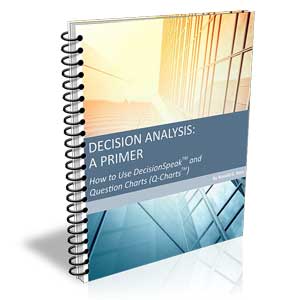Soda and Semantics
During a recent speaking engagement, I displayed a drawing of a red can with white curvy stripe but without a label and asked the room, "What do you call this item?" The answers given were "pop," "soda," "soft drink," and the Texas natives all said "Coke" (more about this later). They were all referring to the same concept but using different terms to describe it.
During a recent requirements session, one individual was struggling to explain a specific term in a process and grew frustrated answering questions from the team. In exasperation, the user exclaimed, "You know what I mean!" No, we did not. Users do not like to be asked to define, describe, and give details about words they commonly use, but it is necessary. As my experiment with the soda proves, very different terms can be used for the same concept, and it is up the Business Analyst (BA) to discover the true gist of the word, or the 'semantics'.
Merriam-Webster defines semantics as "the study of meanings." The need for the study of semantics arises because words are ambiguous. A "semantic barrier" occurs when there are differences of understanding; these barriers can be very subtle and are easily overlooked. Semantic barriers are not limited to words but include misunderstanding of underlying assumptions. When I moved to Texas and was offered a "Coke" it was a year before I discovered my hostess assumed I understood she was offering me a "soda." (A map of these regional differences can be viewed at www.popvssoda.com.) If a common concept such as a soft drink can be misunderstood, what else can be incorrectly interpreted?
Other semantic barriers encountered are acronyms and regulations. When working for the Department of Defense, I was provided a very thick book of acronyms; many were the same value but represented totally different entities. Does DOD stand for Department of Defense, Director of Development, or Date of Discharge? The inclusion of a regulation or law always has implicit assumptions. Is the "Regulated Entity" referring to a government agency, a financial institution, or other concept? The BA must ask many questions and may need to dig deep to unearth these hidden semantics.
When having conversations with the business, the BA should remember they are not taking dictation and copying sentences exactly as spoken. The BA must carefully listen to the entire conversation to capture the true meaning — the semantics — of the business rule. As Ron Ross explains:
"…Managing business rules needs to be about managing meaning — semantics — not just statements."[1]
References
[1] Business Rules Concepts, fourth edition. Ronald G. Ross, p.86. ![]()
# # #
About our Contributor:
Online Interactive Training Series
In response to a great many requests, Business Rule Solutions now offers at-a-distance learning options. No travel, no backlogs, no hassles. Same great instructors, but with schedules, content and pricing designed to meet the special needs of busy professionals.











